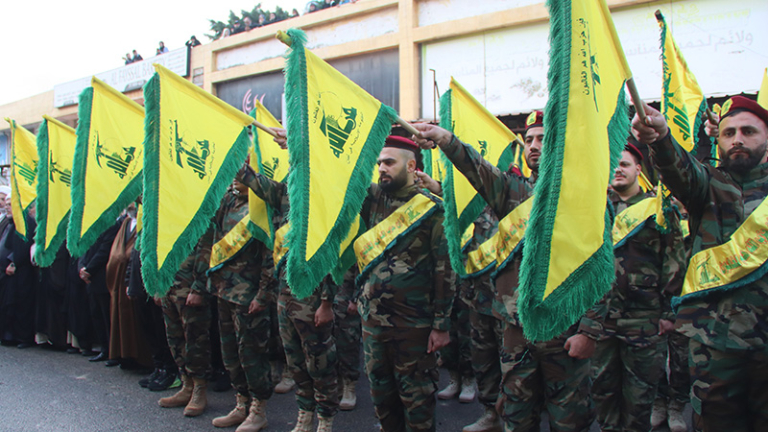Mossad’s Covert Pager Operation: A Lethal Strike on Hezbollah and the Future of Modern Espionage
In an unprecedented act of modern espionage, Mossad orchestrated one of the most audacious and devastating operations against Hezbollah by turning an ordinary communication device into a lethal weapon. The operation, which began as a covert plan two years ago, culminated in the mass detonation of thousands of pagers on September 17, resulting in the deaths and maiming of an estimated 3,000 Hezbollah fighters, officers, and civilians. This daring maneuver, which relied on the AR924 pager, marks a significant turning point in Israel’s long-standing conflict with Hezbollah and exemplifies the evolving nature of spycraft in the digital age.
) The origins of this operation can be traced back to 2022, when Mossad was tasked with finding new ways to infiltrate Hezbollah’s communication networks. Hezbollah, a Lebanese militant group backed by Iran, had grown increasingly sophisticated in its efforts to evade Israeli surveillance. Paranoid about Israeli intelligence monitoring their communications, their leadership was constantly on the lookout for untraceable, secure devices. Mossad, aware of this vulnerability, devised a plan to offer them the exact tools they sought—seemingly secure communication devices that, in reality, were Trojan horses.
The origins of this operation can be traced back to 2022, when Mossad was tasked with finding new ways to infiltrate Hezbollah’s communication networks. Hezbollah, a Lebanese militant group backed by Iran, had grown increasingly sophisticated in its efforts to evade Israeli surveillance. Paranoid about Israeli intelligence monitoring their communications, their leadership was constantly on the lookout for untraceable, secure devices. Mossad, aware of this vulnerability, devised a plan to offer them the exact tools they sought—seemingly secure communication devices that, in reality, were Trojan horses.
At the heart of the operation was the AR924 pager, a device that appeared tailor-made for Hezbollah’s needs. The pager was rugged, waterproof, and boasted a long-lasting battery capable of functioning for months without recharging—ideal for fighters stationed in remote areas across Lebanon and Syria. Moreover, the pagers were marketed as being immune to Israeli tracking, which made them highly appealing to Hezbollah leaders. What they didn’t realize was that Mossad had designed the pagers themselves, embedding them with hidden explosives that could be remotely triggered or set off through a manual process involving the device’s decryption mechanism.
In early 2023, Hezbollah made a bulk purchase of the AR924 pagers, convinced of their reliability and eager to distribute them to mid-level fighters and support personnel. The devices were soon scattered across its’s network, stretching from Lebanon to Syria. For months, the pagers operated as expected, enabling them to coordinate communications without suspicion. Little did they know, the battery packs within each pager concealed a powerful explosive that could be activated at Mossad’s command or via the pager’s two-step decryption process. This decryption process required users to press two buttons, typically necessitating the use of both hands, a design feature that ensured maximum casualties when the devices detonated.

On September 17, the first part of Mossad’s meticulously planned operation was set into motion. Thousands of the AR924 pagers exploded simultaneously as Hezbollah operatives across Lebanon and Syria attempted to decrypt messages. The explosions were devastating, with many fighters holding the pagers in their hands when they detonated, resulting in severe injuries or instant death. In a matter of moments, they lost an estimated 3,000 personnel, including officers and fighters, while civilians in the vicinity were also caught in the blasts.
The scale of the operation was staggering, but Mossad’s plan didn’t stop there. The following day, another wave of destruction was unleashed when Mossad remotely triggered booby-trapped walkie-talkies that had been distributed among Hezbollah operatives. The explosions caused further chaos and severely disrupted Hezbollah’s communication networks. The precision of the operation left Hezbollah in disarray, undermining its leadership structure and leaving its fighters vulnerable.

In the aftermath of the operation, Israel launched a series of airstrikes targeting Hezbollah’s key military infrastructure. The combination of the pager explosions and airstrikes inflicted significant damage on them, both in terms of personnel and operational capabilities. For them, the attack was a devastating blow, further exposing their vulnerability to Israeli intelligence and technological prowess. The attack also underscored the profound risks of modern spycraft, where even seemingly benign objects like pagers could be weaponized with deadly efficiency.
The success of Mossad’s operation, however, came at a cost. The destruction unleashed on Hezbollah sparked a fierce response from the group and its backers, particularly Iran. Hezbollah retaliated with rocket fire, targeting Israeli positions along the border, while Iranian officials condemned the operation and vowed to support Hezbollah in its efforts to escalate the conflict. The situation in the region quickly became more volatile, with both sides engaging in tit-for-tat exchanges that raised the specter of a broader conflict.
For Israel, the operation against Hezbollah was not just a tactical success but a strategic demonstration of Mossad’s capabilities. The use of technology to penetrate its’s ranks in such a devastating way highlighted the lengths to which Israel is willing to go to neutralize threats. At the same time, the operation also served as a warning to other hostile entities in the region, showcasing Mossad’s capacity for innovative, high-risk espionage.
The September 17 pager explosions marked a turning point in the ongoing conflict between Israel and Hezbollah. While Mossad’s operation succeeded in inflicting massive damage on it, it also underscored the precarious nature of the region’s security landscape. As Hezbollah seeks to regroup and retaliate, and as Iran continues to provide support, the possibility of further escalation remains high. The attack also raised ethical questions about the use of covert technology in warfare, especially when it results in civilian casualties.
Ultimately, Mossad’s operation against Hezbollah demonstrated the evolving nature of modern espionage, where the lines between technology, intelligence, and warfare are increasingly blurred. The operation’s success reaffirmed Israel’s commitment to protecting its security interests, but it also set the stage for a potentially more dangerous and unpredictable conflict in the future.

